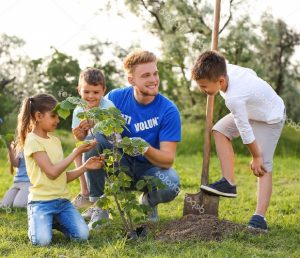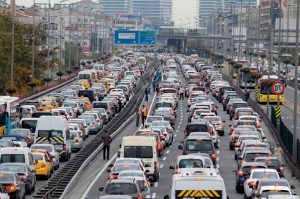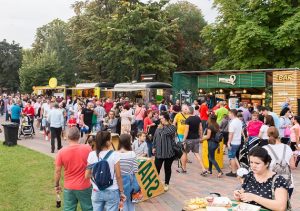We, You, They ARE, 3
Review: Be as a Linking Verb
Forms of be: be, am is are, was were, been, being
The verb be can function as a linking verb (or copular). It links or connects a subject and a predicate.
(+): Subject + be + predicate noun/adjective.
(-): Subject + be not + predicate noun/adjective.
The verb be takes on different forms depending its subject and tense. In this section, we look at are.
Positive Sentences Forms with Are
Are is used with the second person singular (you), and plural (you, we, they).
(+): We/You/They
John and Mary+ are + noun/adjective.
The children
These chairs
Examples:
• We are from New Zealand.
• Tom and Ivan are rocket scientists.
• The soldier’s barracks are very clean
Negative Sentences
(-): We/You/They
Mr. and Mrs. Smith+ are not + noun/adjective.
Her sons/Our cars
Those referees
Examples:
• His dogs aren’t in the back yard.
• You’re not (You aren’t) a child! Act your age!
• The fans are not enthusiastic anymore; their team lost the championship match.
Incorrect: His dogs’re not mean.



Exercise
Respond to the following statements with yes, no, true, false, not true, I agree, I disagree; in the middle, some, sometimes, most, mostly, maybe, usually, sometimes, in a way, it depends. Say why and give examples. Make corrections if necessary.
100. Smartphones and laptops are very good for children and teenagers. What do you think?
101. Dogs, cats, birds and hamsters are very similar to people. They behave similarly to people.
102. Every person in my city, region and country are employed. Everyone works. Everyone has a job.
103. Children and teenagers are always very happy.
104. Hamburgers, shawarma and pizza and are old, traditional foods in my city.



105. Forests and mountains are homes to many people. Many people live in forests and mountains
106. Most people are good. 99% of people are basically good.
107. The houses in villages are very pretty.
108. Trees are very important for the planet. We must plant more trees.
109. Cities are busy, crowded, noisy and face-paced. My friends prefer to live in the country.


